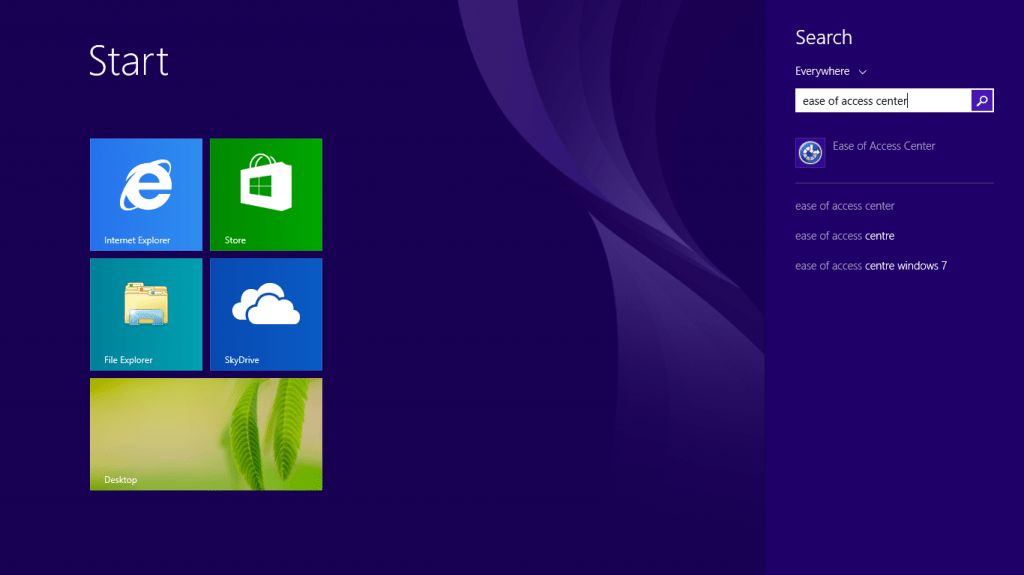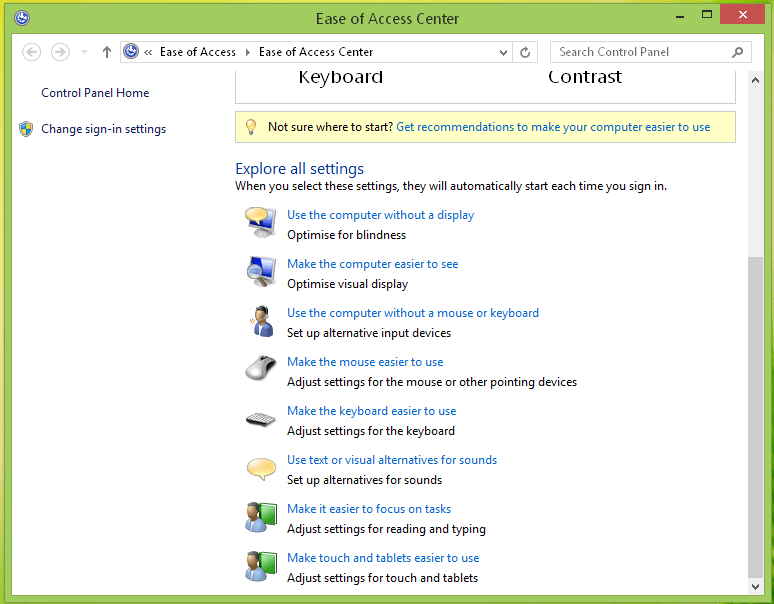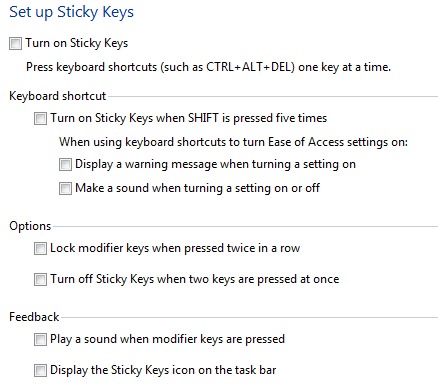Many people use a computer keyboard with one hand, with a typing wand grasped in a fist, or using a mouth stick so programs that need you to press two or three keys at one time to carry out commands such as saving a document can be difficult, uncomfortable or just impossible to do with a standard keyboard setup.
Computers have a useful feature called 'Sticky Keys' built in which makes the modifier keys 'sticky' (for example 'Ctrl', 'Alt', and 'Shift' ). In other words it allows you to press one key at a time and tells your computer to respond as if the keys had been pressed simultaneously. Like other accessibility features, it can be found in the section 'Ease of Access Center', inside the Control Panel.
To open the 'Ease of Access Center' in the Control Panel
From a computer with a keyboard and a mouse
- Press the 'Windows' key + U.
Or
- Move the mouse pointer to the upper right hand corner of the screen to reveal the charms.
- Click on the 'Search' charm – the one with the magnification glass icon.
- Type the query 'Ease of Access Center' in the search box (Fig 1).
- Click on the button 'Ease of Access Center'.
From a touch enabled device
- Swipe in from the right hand edge of the screen to reveal the charms.
- Tap on the 'Search' charm – the one with the magnification glass icon.
- Type the query 'Ease of Access Center' in the search box.
- Tap on the button 'Ease of Access Center'.

Figure 1: Using the search to go to the Ease of Access Center

Figure 2: Ease of Access Center
To turn on Sticky Keys
From the 'Ease of Access Center:
- Select ‘Make the keyboard easier to use’, under 'Explore all settings'.
- Select ‘Turn on Sticky Keys’, under 'Make it easier to type'.
- Click on the link 'Set up Sticky Keys' to configure this feature (Fig 3).

Figure 3
- You can select to use the keyboard shortcut (Fig 4) to turn Sticky Keys on and off by pressing the Shift Key 5 times.
- Click to select or press ‘Alt’ + ‘K’ for this option. Press ‘Alt’ + ‘A’ or click to select to ‘Display a warning message when turning a setting on’. Press ‘Alt’ + ‘M’ or click to select to ‘Make a sound when turning a setting on or off’.

Figure 4
- Under 'Options' (Fig 5), 'Lock modifier keys when pressed twice in a row' means that if the Ctrl, Alt, Shift or the Windows logo key are pressed twice in a row, the key remains active until you press the same key for a third time.
- Click to select this option or press ‘Alt’ + ‘L’. 'Turn off Sticky Keys when two keys are pressed at once' means that should another user press the Alt, Shift, Ctrl or the Windows logo key plus another key for example ‘Ctrl’ + ‘S’ to save, Sticky Keys will be turn off. Click to select or press ‘Alt’ + ‘U’.

Figure 5
- For 'Feedback' (Fig 6), select ‘Play a Sound when keys are pressed’.
- To display the Sticky Keys icon on the task bar, click to select or press ‘Alt’ + ‘I’ (Fig 6).

Figure 6
- Click 'OK' to save the changes.
Note: If this does not work it could be because your computer settings cannot be changed due to local IT policies - contact your local IT support for further help.